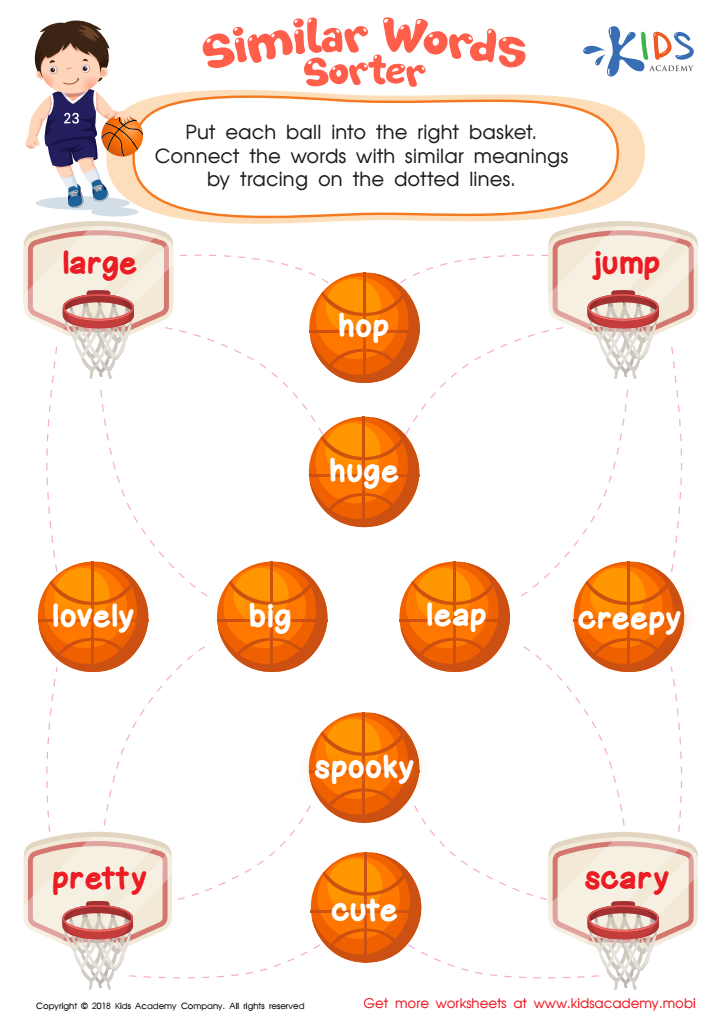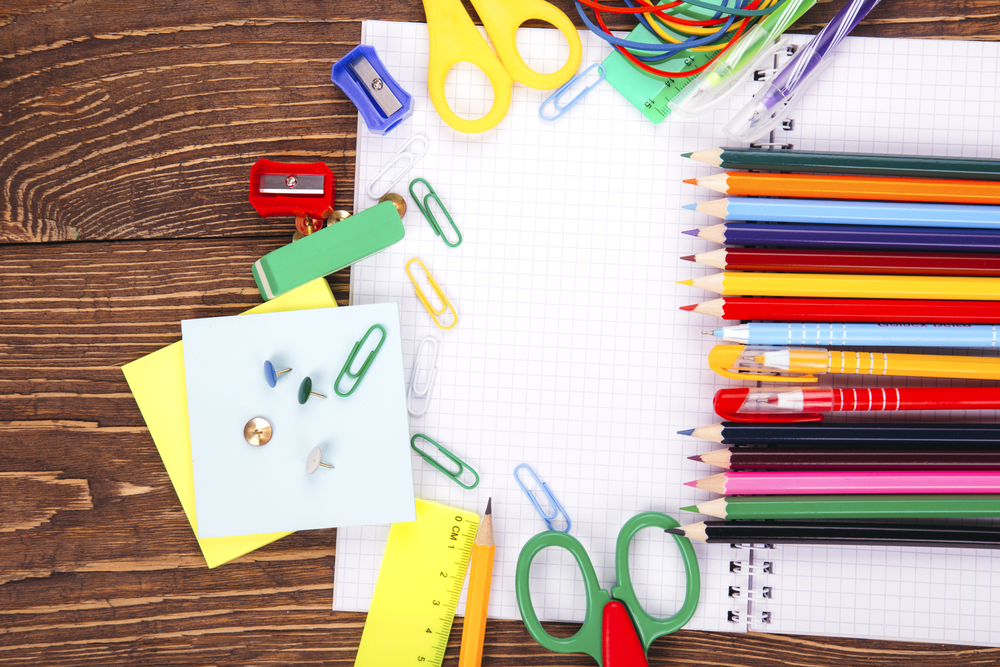Contextual meaning understanding Worksheets for Kids
1 filtered results
-
From - To


Similar Words Worksheet
Question/Answer
How to train the Contextual meaning understanding skill in Kindergarten students learning about Grammar?
To train contextual meaning understanding in Kindergarten students, incorporate storytelling with visuals, engage in role-play activities based on stories, use simple songs or rhymes to highlight different contexts of words, and play games that involve matching words with appropriate pictures or scenarios. Always provide immediate feedback to reinforce learning and encourage curiosity about words in various contexts.
Why is the Contextual meaning understanding skill important for Kindergarten students?
The contextual meaning understanding skill is crucial for Kindergarten students because it lays the foundation for reading comprehension and language development. It helps them grasp the meaning of words and sentences in various contexts, enhancing their ability to communicate effectively, follow instructions, and engage with stories. This skill also supports vocabulary growth and critical thinking from an early age.
How to test a Kindergarten student’s Contextual meaning understanding skills?
To test a Kindergarten student's contextual meaning understanding skills, use simple, age-appropriate texts or stories. Ask the child to explain or describe words and phrases in their own words based on the context. Incorporate visuals or real-life objects for concrete examples, and encourage them to make connections or predictions to assess comprehension and inferential skills within the text's context.
 Assign to the classroom
Assign to the classroom












